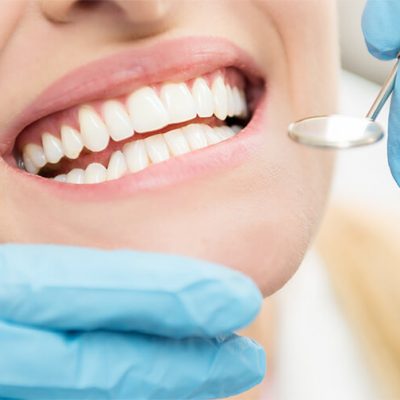Painless and Gentle Root Canal Procedure
If you’re grappling with excruciating tooth pain, an oral infection might be the culprit. These infections typically occur when deep decay or trauma allows bacteria to infiltrate the innermost layers of the tooth and can be treated with root canal therapy.
Dr. Ruchi Bhatia at Premier Novi Dentistry stands ready to rescue your tooth from unnecessary extraction and alleviate your agony. Explore the transformative wonders of root canal therapy in our comprehensive guide below or by calling (248) 348-8808.

What Are Root Canal Treatments?
Root canal therapy is a restorative marvel employed when untreated cavities or prolonged tooth decay pave the way for a bacterial invasion into the tooth’s central layer, known as the pulp chamber. This chamber houses sensitive nerve endings that trigger pain when infected. By utilizing root canal therapy, Dr. Bhatia eliminates the infected tissue, salvaging the tooth from extraction, and restoring it to a state of pristine health.
Benefits of Root Canal Treatments
Root canal treatments extend beyond pain alleviation, providing:
- Preservation of Natural Teeth: Root canal therapy saves your natural tooth from extraction, promoting long-term oral health.
- Efficient Chewing: Restoring your tooth with root canal therapy ensures efficient chewing and prevents potential discomfort.
- Prevention of Further Infections: By eliminating the infected pulp, root canal treatments prevent the spread of infection to surrounding teeth.
How Do I Know I Need a Root Canal Treatment?
Understanding when a root canal treatment is necessary involves recognizing specific signs and symptoms on other teeth that indicate potential dental issues. Here’s a guide to help you identify when a root canal might be the solution.
- Persistent Tooth Pain: Prolonged and intense tooth pain, especially during chewing or applying pressure, may signal the need for a root canal.
- Sensitivity to Temperatures: Increased sensitivity to hot or cold temperatures, even after the stimuli are removed, could be a sign of an infected tooth.
- Swollen Gums: Swelling or tenderness in the gums around a particular tooth may signal an underlying issue that warrants investigation.
- Discoloration of the Tooth: A tooth that has darkened or changed color might be a sign of internal damage or infection.


The Root Canal Treatment Process
Evaluation and Diagnosis
The first crucial step in the root canal treatment process is the diagnosis. Through thorough examination and advanced imaging, the dentist pinpoints the infected tooth and assesses the extent of the damage. This initial phase lays the foundation for a targeted and effective treatment plan.
Prepping for Root Canal Procedure
Once the diagnosis is complete, the next step involves administering local anesthesia. This ensures the patient experiences minimal to no discomfort during the root canal procedure. We also offer dental sedation for patients with anxiety or difficulty with anesthesia alone.
Infected Pulp Removal
With the patient comfortably anesthetized, the dentist proceeds to remove the infected tooth pulp. This crucial step eliminates the source of the infection, paving the way for the restoration of the tooth’s health. The removal is a precise process, aimed at preserving as much of the tooth’s structure as possible.
Cleaning and Sealing The Root Canal
Following the pulp removal, the interior of the tooth undergoes a comprehensive cleaning and disinfection process. Once thoroughly cleansed, the tooth is sealed with a specialized material, typically gutta-percha. This sealing is a preventive measure, guarding adjacent teeth against the possibility of future infections and ensuring the tooth’s long-term health.
Placing Your Restoration
After the cleaning and sealing, the final phase involves the restoration of the tooth. Depending on the extent of the damage, the dentist may apply a crown or filling to bring back the tooth’s structure and functionality. This step is crucial for not only preserving the tooth but also ensuring its seamless integration into the dental structure.
Aftercare for Root Canal Treatments
Experience a smooth and comfortable recovery by following these essential root canal treatment aftercare guidelines:
- Expect Soreness: It’s normal to experience some tooth and gum soreness after a root canal treatment. This discomfort is typically temporary and can be managed with over-the-counter pain medications.
- Take Over-the-counter Pain Medications as Advised: Alleviate any post-treatment discomfort by taking over-the-counter pain medications, such as ibuprofen. Ensure you follow the recommended dosage and consult your dentist if needed.
- Follow-Up Appointment: Schedule a follow-up appointment with your dentist a few days after the root canal procedure. This allows the dentist to assess your recovery, ensure the complete elimination of the infection, and address any concerns you may have.
- Contact Your Dentist for Severe Discomfort: If you experience severe pain or discomfort beyond what is expected during the recovery process, don’t hesitate to contact your dentist promptly. Timely communication ensures any issues can be addressed promptly.
- Maintain Oral Hygiene: Continue to practice good oral hygiene habits, including regular brushing and flossing. However, be gentle around the treated tooth to avoid any unnecessary irritation.

Frequently Asked Questions
Most dental insurance plans cover a portion of the cost of a root canal treatment. However, the extent of coverage can vary. Check with your insurance provider to understand the specifics of your coverage and any potential out-of-pocket expenses.
Recovery time after a root canal treatment varies from person to person. In general, individuals can typically resume normal activities the day after the procedure. Soreness may persist for a few days, and a follow-up appointment with your dentist ensures proper healing and the absence of any complications.
Thanks to the use of local anesthesia, patients usually experience minimal discomfort during a root canal treatment. The dental procedure itself is aimed at relieving pain caused by infection. Any post-treatment soreness can be managed with over-the-counter pain medications as recommended by your dentist.
In most cases, individuals can return to work the day after a root canal treatment. Be mindful of any post-treatment instructions provided by your dentist. Avoiding strenuous activities and maintaining good oral hygiene during the initial recovery period contributes to a smooth return to regular routines.
Safeguard Your Oral Health with Painless Root Canal Surgery
Don’t put up with an infected tooth. At Premier Novi Dentistry, we offer relief and restoration of your oral health. To determine if a root canal is necessary, schedule a consultation with Dr. Bhatia at our Novi office by calling (248) 348-8808. Alternatively, fill out our online contact form, and we’ll gladly assist you. We also welcome patients from Northville, Farmington, and Wixom.